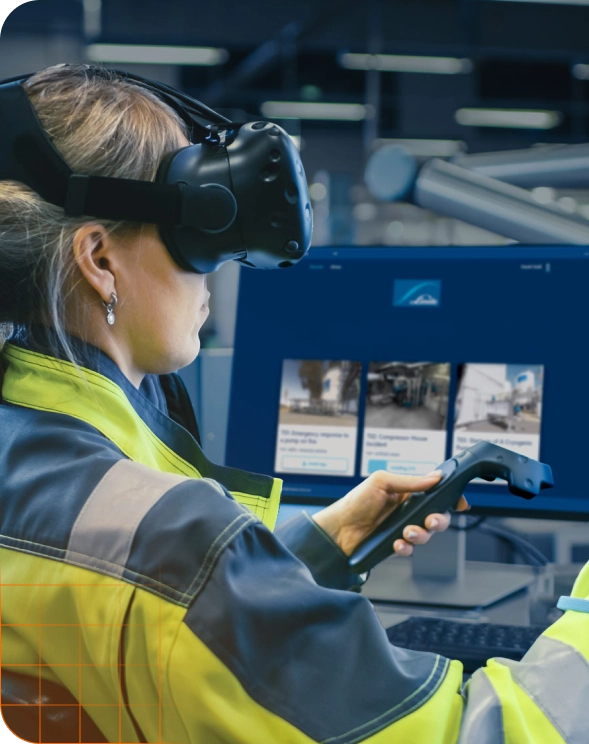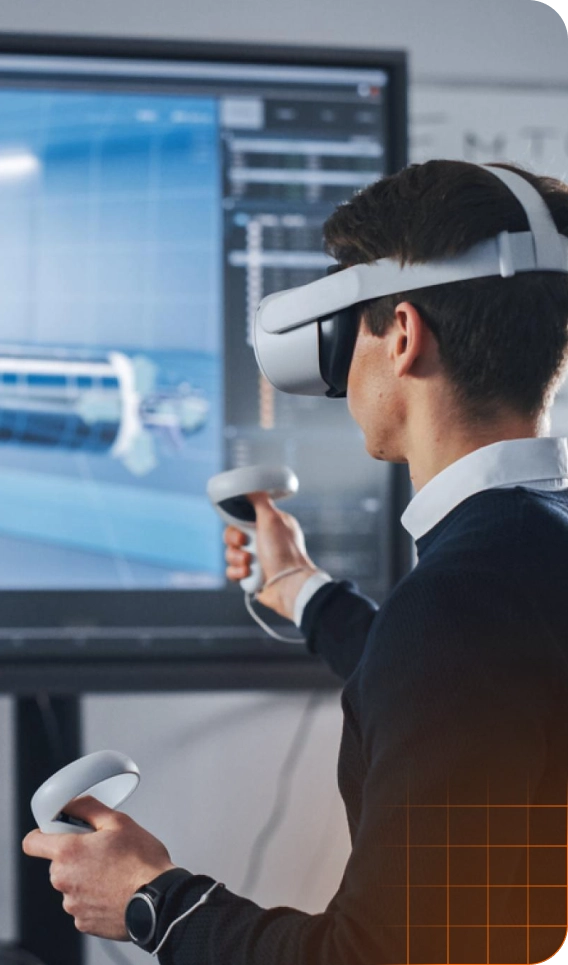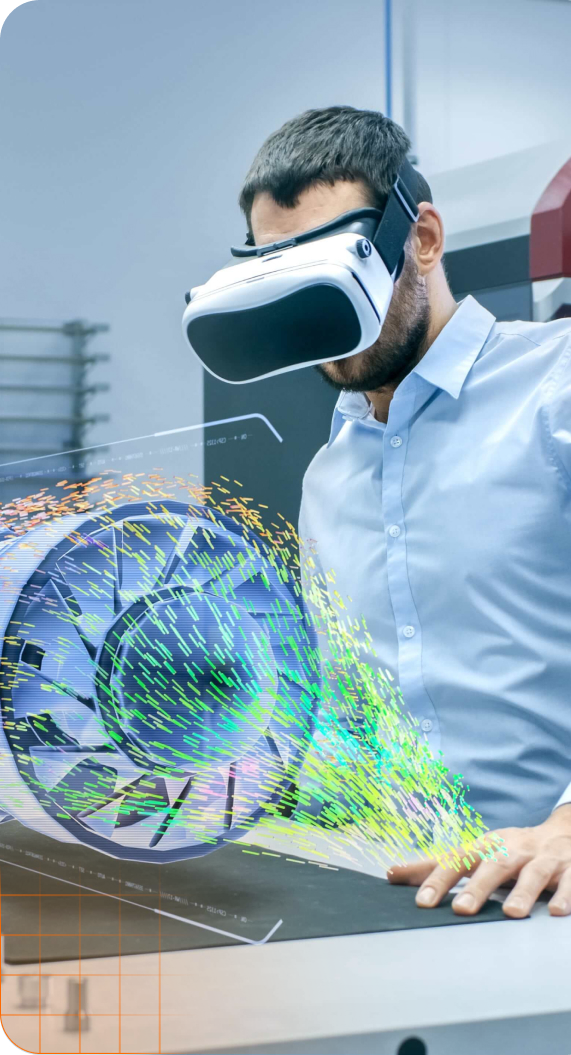Using AR and VR simulators for business

VR simulators allow you to create a virtual environment for training that takes into account the laws of physics, creating the highest degree of realism. The use of VR simulators is not limited to the entertainment industry; they have also found their place in various sectors of the manufacturing industry.
Simulators create a virtual environment where users can interact with scenarios, learn, train, or immerse themselves in alternative realities.
Differences between AR and VR simulators and training simulators
The main difference between AR and VR simulators and training tools is the level of user involvement in the virtual space.
Simulators aim to create realistic conditions and engage the user in the learning process, where the user interacts with the environment, equipment, and tools as if they were real, hearing sounds and feeling the impact.


Areas of application of simulators
Medicine
Training surgeons, simulating surgeries and procedures to improve skills and enhance the quality of medical care.

Transport management
Training of car drivers, pilots, sea captains, and other transport specialists by simulating various situations on roads, in the air, and on water.

Industry
Training in working with industrial equipment, installing and servicing machinery, and modeling production processes.

Industrial safety
First aid training, emergency evacuation, and training in handling hazardous substances in a safe virtual environment.

Loading and unloading of cargo
Training warehouse and logistics company employees in loading, unloading, and warehouse logistics processes through workflow simulation.

Aviation
Training pilots, flight attendants, and other aviation professionals through flight simulations, emergency situations, and onboard actions.
Advantages of AR and VR simulators


Realistic simulation of situations:
A virtual environment that is as close to real-life conditions as possible, to improve the quality of training.
Effective training:
Simulator training speeds up the learning process and reduces the number of breakdowns of real equipment during operation and offline training.
Safety:
Users learn in a safe virtual environment, minimizing the risk to themselves and others.
Save resources:
Using simulators saves the company money, as training on real equipment can be too long, expensive, or even dangerous.
Analytics and reporting:
Simulators collect data on the learning process, analyze user actions, and provide reports, which helps to improve programs and increase the effectiveness of learning.
Ease of maintenance and content development:
Creating and maintaining simulators using a Low-code/No-code interface simplifies the process and reduces maintenance and content development costs.
5sensar specializes in creating VR simulators and offers a full range of services for custom development and implementation of your ideas into reality.
What you'll get:
- Individual approach:
- Consultations to determine the basic requirements for the simulator and its functionality.
- Designing the simulator:
- Detailed simulator, visualization, and concept design, taking into account all specific requirements.
- Content development:
- Creating virtual environments, scenarios, and training tasks. Integrating interactive elements, animations, and sound effects.
- Technical implementation:
- Programming, hardware integration, and testing using advanced technologies and tools.
- Support and maintenance:
- Full support and maintenance, including content updates, technical support, and resolution of any issues that may arise.
We guarantee reliable simulator operation and long-term cooperation.
Submit your request and our consultant will contact you


Are you interested in the solution?
Contact us or leave an
online application below!